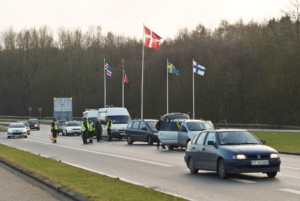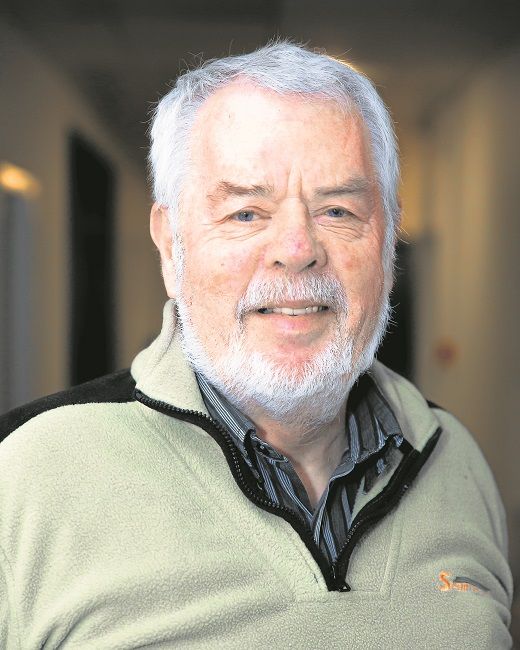Opinion
This Week’s Editorial: Refugees at work
Ejvind Sandal
This article is more than 9 years old.

It’s proving tricky to get past the Danish-German border (photo: Arne List)
The Danish politicians have digested the L87 austerity package and found a comfortable majority behind it – including Socialdemokraterne. The next step is finding employment for the refugees.
Enabling them to work
There is no minimum wage law in Denmark, but labour market agreements tend to concur that the lowest a worker should be paid is 123 kroner per hour.
Tri-party negotiations between the unions, workers and the government will need to find a solution in which refugees get paid closer to half of this. The unions are afraid of inviting people to work for such wages or even for free.
But it is essential that the government, unions and employer associations establish a model – including provisions for low wages and internships, apprenticeships etc – that makes it possible for the refugees to join the workforce.
Integration does work
In the meantime, the noise over the border control measures has died down. It seems that the outer border system in the EU is slowly taking shape. The latest wave from Aleppo may be the last before the world gets to grips with repatriation and finds a political balance.
The next step will be integration. Most refugees have nothing to return to if allowed to. It will be interesting to see if the authorities choose to see the refugees as an opportunity.
I visited an iron foundry in Jutland recently. Thirty years ago they sent buses to Hamburg to hire Turkish migrants. Now they are all integrated – many assimilated – and one was recently elected to the board of directors by his peers.
The working man is scared of pressure on welfare allowances and the high wages – which is understandable enough. However when you look at the numbers, it seems much less scary.
Free the people to act
In general managers would like to employ as many as the labour unions allow them. As it is now, they are offered kontanthjælpsmodtagere of Danish origin, and that has been a slow procedure.
It is assumed that those refugees are actually eager to go work and show they are better than sitting around the asylum centre and doing nothing. The Danes on the street are doing their bit, volunteering at the refugee centres, showing a welcoming face to the new arrivals.
The proof will come in the spring. Only then will we see if the hype is actually quietening and the hopes of integration are increasing.
About
Ejvind Sandal
Copenhagen Post editor-in-chief Ejvind Sandal has never been afraid to voice his opinion. In 1997 he was fired after a ten-year stint as the chief executive of Politiken for daring to suggest the newspaper merged with Jyllands-Posten. He then joined the J-P board in 2001, finally departing in 2003, the very year it merged with Politiken. He is also a former chairman of the football club Brøndby IF (2000-05) where he memorably refused to give Michael Laudrup a new contract prior to his hasty departure. A practising lawyer until 2014, Sandal is also the former chairman of Vestas Wind Systems and Axcel Industriinvestor. He has been the owner of the Copenhagen Post since 2000.











































